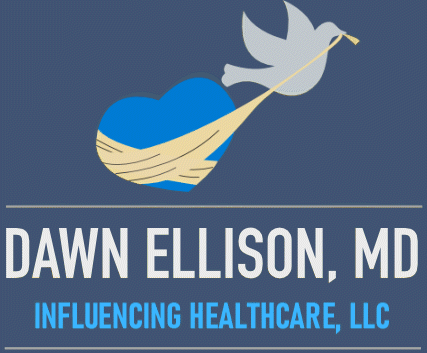Have You “Failed” Your New Year Resolution?
Many of us make New Years Resolutions. Novelty and renewal are infectious this time of year and it is easy to get into the spirit of making promises to ourselves for improvement. We do this despite failed and forgotten previous resolutions. It is good to have faith that we can change our behaviors; it’s even better to know how to change them!
An important, and somewhat unique reason I became an Emergency Physician, was that I recognized the opportunity I had to make a difference in people’s lives. Not because I could bring them back to life in a code situation (that rarely happens), but because I meet them in crisis and have a window of opportunity to help them change the behaviors that will have more impact on their lives than much of the healthcare they receive.
I knew that it wasn’t enough to tell patients once that they needed to lose weight, stop smoking, or wear a seatbelt. I learned that repeated messages about the importance of smoking cessation were necessary. Initially, I just reminded them of the importance to their heath or gave them new information about the role of smoking in heart disease, cognitive decline, wrinkles and impotence. You would be surprised how many smokers only think of lung cancer, which they see as rare. Since then, I have learned many other ways to change behavior.
My community activities that helped make the city I worked in smoke-free were probably more effective than all the encouragement I gave my patients. Knowing that it is better not to smoke is often not enough. Most smokers have heard that message many times. Restrictions on public smoking have had a tremendous impact on smoking rates! These regulations make smoking difficult and, therefore, make not smoking easier. If you can’t just pick up a cigarette and smoke; if you need to go outside first; it takes more effort. I expect that smoking behavior in my home state of MN is significantly decreased in the dead of winter.
One of the keys to developing a new behavior is to make it easier than the old behavior. This blog post is meant to guide you to choose and learn how to sustain healthier behaviors. These principles of change work for individuals, communities and organizations. Stay tuned and do a little work up front so that you can make a difference in your life, community or organization. Take the time to do it right!
Here are some other articles you may enjoy reading
Three questions to help identify and develop a plan for removing obstacles that stand in the way of necessary change.
Change is difficult, but it can lead to better habits. By identifying our triggers and cues, we can use them to help build good habits.
How Can You Move the Elephant?
Small steps make change more approachable. Explore different methods that will help lead your ‘elephant’ away from unhealthy habits and onto a path of success.





